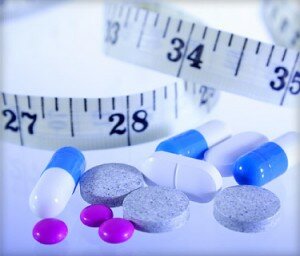Most everyone knows enough to tell the difference from healthy and unhealthy foods. As a rule of thumb, I always say that unhealthy foods are when immediately after eating you think, “I should not have eaten that.” And I am also a firm believer in making one’s own weight loss recipe.
To make an effective weight loss recipe though, one should know who the arch enemies of healthy foods are. There are the usual suspects that have gotten such a bad rep over the years that even non-experts like us could spot them from a mile away. Here are a few of the weight loss recipe enemies:
Butter– OHMIGOD HOW GOOD IS BUTTER, RIGHT?! I cannot think of anything else that is better for frying, nothing more mouth watering, not one think that can be added to make anything fried better. I could write a series of love songs devoted to the richness and absolute divinity of butter.
I would pledge my allegiance to butter. Except for a teeny tiny thing—it will eventually kill you since it’s basically just tastier lard. So yeah, I’m happy for you and Im’ma let you finish, butter, but unclogged arteries are still essential to stay alive—TO STAY ALIVE!
Cream– okay so if butter is the holy grail of all things fried and glorious, this right here is the knockout of all things dessert. That foamy, luscious goodness that stays in your mouth for a few seconds to tease and then dissolves to a smooth layer on your tongue. I love you, cream; please say you love me, too.
Unfortunately, cream certainly does not love back. She is a cold, calculating hag that can only be enjoyed for a small fraction of your life then leave you only with a memory. Again, health gets in the way.
Sugar– Ah, sugar, the good ole friend who has always been there for us. Constantly reinventing herself in new concoctions that blow our taste buds to bits, sugar cannot and will not be silenced. This form of carbohydrate might be simple (some would even say cheap) but she is not one to be quickly forgotten.
 Most of us have held sugars sweet taste in our mouths since childhood and have since learned that she isn't all that good for you. And as grownups we realize that not only is she bad for us, she’s everywhere—what a psycho. So beware of this temptress, beware her siren song.
Most of us have held sugars sweet taste in our mouths since childhood and have since learned that she isn't all that good for you. And as grownups we realize that not only is she bad for us, she’s everywhere—what a psycho. So beware of this temptress, beware her siren song.
So there you have it, the main perpetrators in the complaint launched by weight loss recipe (WLR) proponents. WLR pros has been campaigning for zero tolerance when it comes to the utilization of these 3 architects of health decay and it’s not that easy to say who’s winning. Even harder to say which side I am on.
While information on weight loss recipe propaganda has been informative, butter et.al still remains to be yummy. Who will win this conflict? Only time and heart disease statistics will be able to tell.











